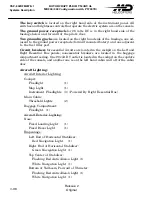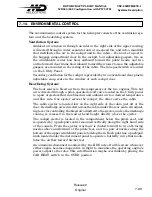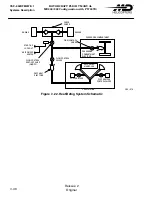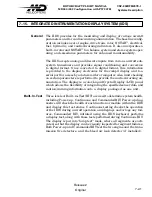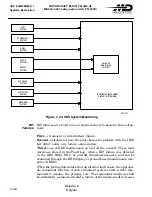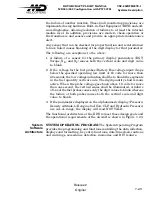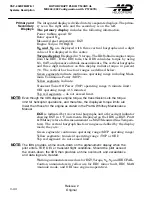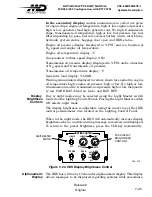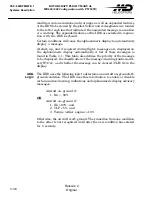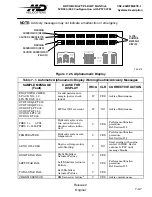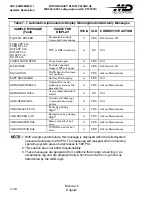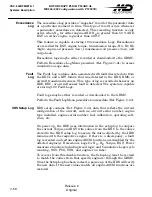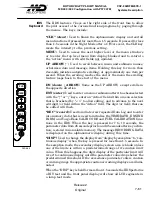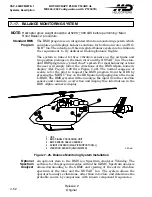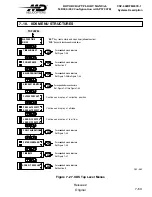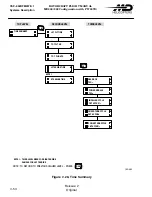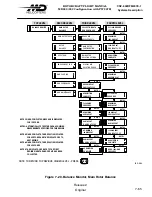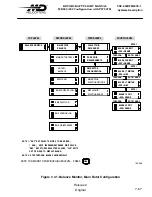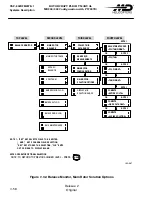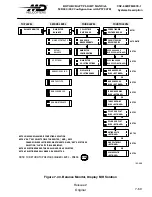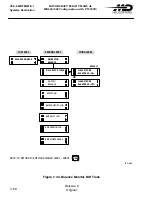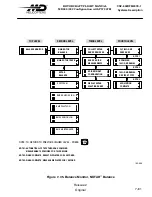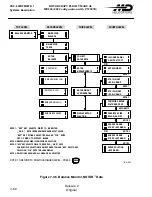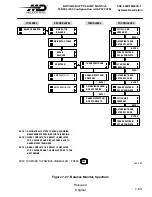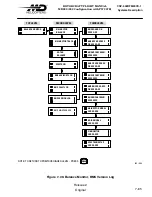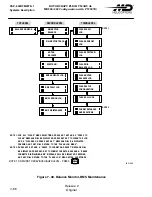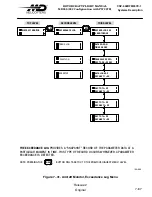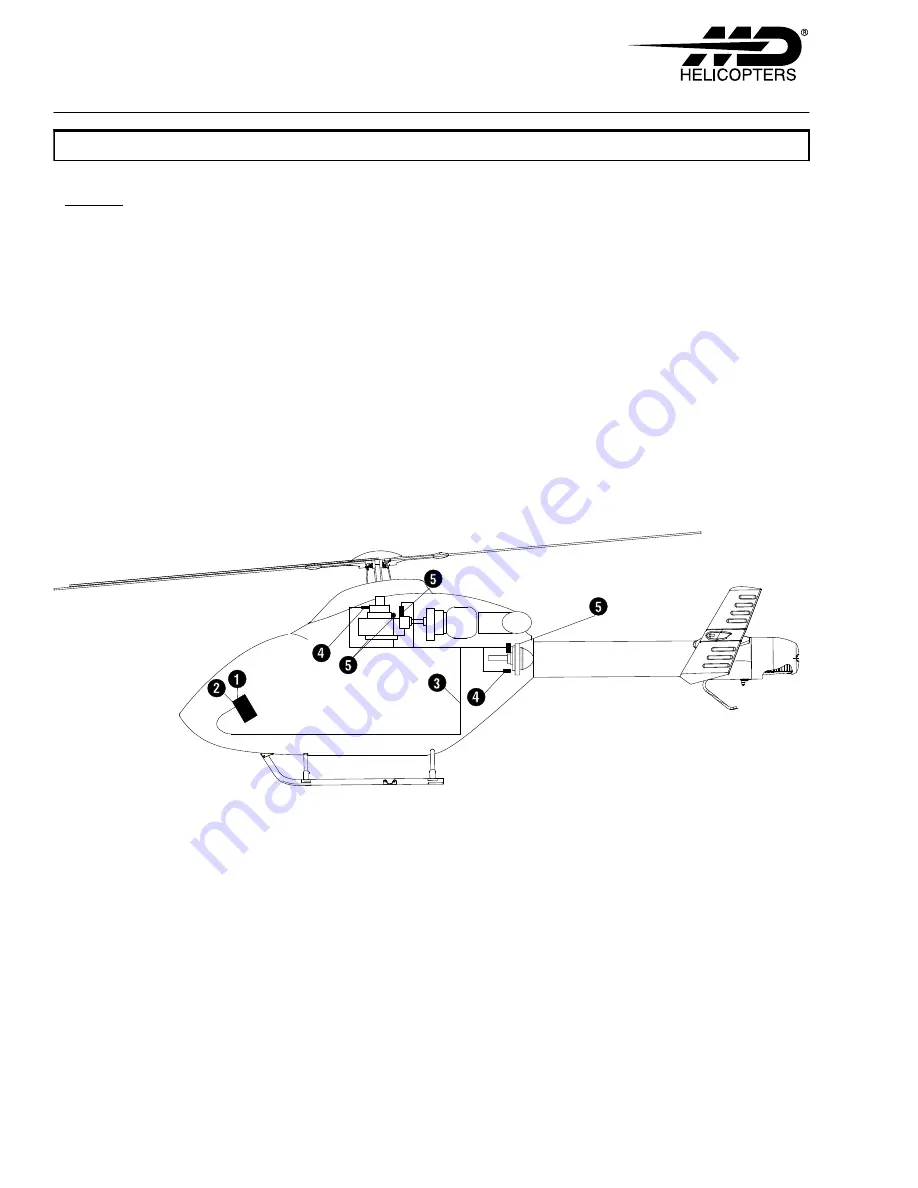
CSP
−
902RFM207E
−
1
ROTORCRAFT FLIGHT MANUAL
MD900 (902 Configuration with PW 207E)
Systems Description
Original
7
−
52
Reissue 2
7
−
17. BALANCE MONITORING SYSTEM
NOTE
:
Helicopter gross weight should be at 5200
300 LBS before performing ‘‘Main
Rotor Balance’’ procedure.
The BMS program is an integrated vibration monitoring system which
calculates and displays balance solutions for both main rotor and NO
TAR
fan. The intention of this integrated balance system is to eliminate
the requirement to fly dedicated tracking/balance flights.
The system is linked to three vibration sensors on the airframe and
two position pickups on the main rotor and the NOTAR
fan. The stan
dard BMS program is a ``smart chart'' system. For most balancing actions
the user will simply follow the directions of the BMS Alpha-numeric
display (Ref. Figure 7-29 thru Figure 7-40). The normal sequence of
events is for the pilot to request the BMS program from the IIDS by
pressing the ``MENU'' key on the IIDS panel and paging down the menu
to BMS. The BMS system will then analyze the input from the rotor/fan
sensors and calculate a correction and display this information in the
IIDS Alpha-numeric display.
ÎÎ
ÎÎ
1. IIDS
2. BMS SIGNAL PROCESSING UNIT
3. BMS SENSOR CABLE HARNESS
4. AZIMUTH SENSOR (MAG PICKUP/PHOTOCELL)
5. VIBRATION SENSOR (VELOCIMETER)
F92
−
081
Figure 7
−
26. Balance Monitoring System Installation
An optional item to the BMS
is a Spectrum Analyzer Vibralog. The
software for this
program resides within the GBMC. Spectrum analysis
allows
downloading to the GBMC and viewing of the entire vibration
spectrum of the rotor and the NOTAR
fan. The system allows the
operator
to analyze vibrations, other than rotor/fan, and determine
the
probable source by comparison with known component
frequencies.
Standard BMS
Program
Optional
Spectrum
Analyzer
Summary of Contents for MD900 Explorer
Page 4: ......

